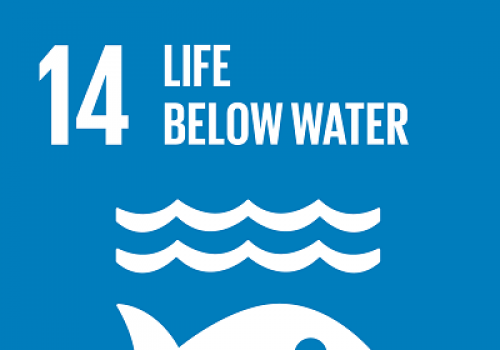Sustainable Development Goal 14 (life below water) is a priority focus for the Southern African Development Community (SADC) where so many of the Region’s communities are reliant on fish, inland waters and oceans to provide food, employment and income.
In 2017 during the First United Nations Oceans Conference held in New York, the United States of America, SADC registered a voluntary commitment to “establish and strengthen existing regional fisheries monitoring control and surveillance (MCS) mechanisms in the Eastern Africa, Southern Africa and Indian Ocean (EA-SA-IO) region”.
This is in line with the SADC Protocol on Fisheries and its Annex, Statement of Commitment to combat Illegal, Unreported and Unregulated (IUU) fishing by SADC Ministers responsible for Fisheries.
On November 20, in commemoration of World Fisheries Day 2020, the SADC Secretariat, in cooperation with partners, Stop Illegal Fishing (SIF) and the World Wide Fund for Nature (WWF), held a webinar titled ‘Improving Regional Fisheries Governance and Sustainability through Transparency - focus on West Indian Ocean Tuna Fisheries’.
Mr Saasa Pheeha, Acting Chief Director Marine Resource Management in South Africa’s Department for Environment, Forestry and Fisheries, facilitated the webinar, which was attended by 48 participants representing 11 SADC Member States, and 10 partner organisations. Ms. Catherine Zucco, from WWF Germany moderated the webinar.
The objective was to take stock of the state of compliance by fishers and fishing companies, and how transparency in fisheries can address non-compliance and IUU fishing in the Western Indian Ocean (WIO). The webinar also focused on how the region has performed in terms of meeting targets under SDG 14, which highlights the need to conserve and sustainably use the oceans, seas and marine resources to benefit present and future generations.
In his opening remarks, Dr Motseki Hlatshwayo, Fisheries Technical Advisor at SADC Secretariat, stated that IUU fishing severely affects regional fisheries. He noted that lack of transparency in fisheries allows illegal operators to create confusion around vessel identities, escape detection by changing vessel names or concealing ownership, flying different flags to avoid detection or removal of vessels from ships registries. These weaknesses allow or exacerbate illegal fishing in the SADC Region.
Dr Hlatshwayo’s remarks were echoed by Mr Pheeha, who indicated that IUU fishing is aggravated by COVID-19, which is impacting SADC’s resources and capacity for fisheries MCS, resulting in the increased need for regional cooperation to manage the precious resources.
Presentations focussed on the industrial fishing and small-scale fishing sectors, as well as unregulated fisheries, which are those in areas beyond national jurisdiction (ABNJ). Ms Sandy Davies presented key findings from Stop Illegal Fishing’s (SIF) recent report on Moving Tuna: Transhipment in the Western Indian Ocean.
The challenges facing the small-scale sector were addressed by Mr Umair Shaid, WWF-Mozambique. With small-scale encompassing vessels up to 24 metres in length, the need to distinguish between those fishing commercially and those fishing for subsistence is needed.
Growing concerns for the status of unregulated fishing were presented by Dr Antonia Leroy, WWF EU. The report Unregulated Fishing on the High Seas of the Indian Ocean, published by WWF and Trygg Mat Tracking, demonstrates the exponential growth of unregulated fishing activity since 2015.
The value of developing the SADC Regional MCS Coordination Centre (MCSCC) was reiterated throughout the discussions. Regional initiatives like the SADC MCSCC and the Indian Ocean Commission (IOC) initiatives can support information sharing, cross checking of information and the adoption of good and standardised procedures. They are also helpful in providing a balancing act in the regional inequalities of capacity between different states.
This webinar provided a platform for the region to reflect on the importance of fisheries in the SADC region – providing food, nutrition and livelihoods. Member States must strengthen their efforts to end illegal fishing and protect the regional fisheries. The SADC MCSCC will support national, regional and international efforts to end illegal fishing.
| Attachment | Size |
|---|---|
| wwftmt_unregulated_fishing_on_the_high_seas_of_the_indian_ocean_2020.pdf | 9.84 MB |

